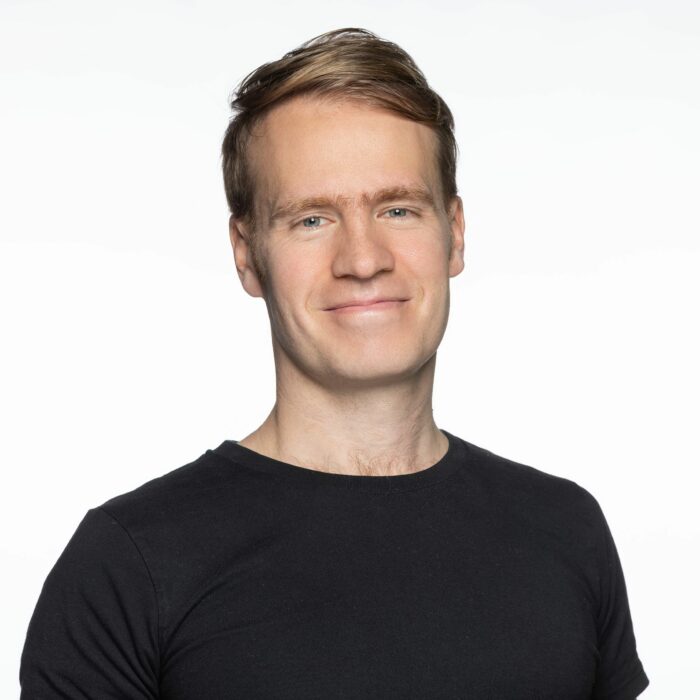The Progressive Post
Progressive agents of change

In the last decades, demands for orientation and political leadership in increasingly complex societies have risen. And so have demands of citizens for more direct participation. The current pandemic has only exacerbated these possibly contradictory developments. Progressive political parties will have to carefully readjust between citizens’ demands for more participation and inclusion on the one hand, and more orientation on the other, if they are to play a leading role in the necessary social-ecological transformations to come in the post-Covid world.
As sociological observations have carved out, during the last decades the demands of citizens towards political parties, political elites, and representative democracies are marked by increasing discrepancies.
Firstly, rising social complexities have led to a growing desire for political efficiency and leadership that gives orientation. Parties, elites, and governments are expected to provide policy efficiency and to offer a plausible and trust-inducing political narrative in a world that is increasingly perceived as confusing and chaotic. Secondly, at the same time, rising levels of self-confidence, self-efficacy, and education have made citizens demand direct participation in democratic decision-making. In turn, organisations of democratic and political intermediation, such as political parties, are increasingly viewed with suspicion and distrust. Thirdly, there has been a growing contrast between the desire for a comforting social belonging on the one hand, such as the often-quoted historical social milieus, classes, families, or social groups, and the emancipation of social restrictions these may bring about, on the other. This has led to liberation and a certain level of isolated singularisation. In the Western countries of today, many crave for closer social ties and inclusion, yet they fear those very same ties and inclusion might restrict their self-realisation as a flexible individual.
The possible tensions that may arise from these diagnoses have been growing for quite some time, and they have been exacerbated by the Covid-crisis. Citizens demand policy efficiency and speed in light of a global pandemic, yet increasingly demand to be heard and involved. Furthermore, in a crisis that has in a literal sense isolated millions of people in their homes, citizens are longing for social connections, yet do not want to see their individual freedom and flexibility restricted. What is more, the political tensions that arise from these contradictions of social modernisation are not equal for all party families. Indeed, they prove especially relevant to the progressive side of the political spectrum – both because the ideal of close ties and social belonging is (still) held dear in light of the history of class mobilisation and because the ideals of democracy, participation and individual emancipation have always been of great importance to these movements.
The resulting tensions have, throughout history, always led to organisational adaptions of movements and parties alike. The struggles for party statutes, intra-party-democracy, or the role of the members, have mirrored what had been considered democratic, desirable, and necessary at the time. As a result, whenever debates over reforms break out, they indicate that political organisation and democratic demands have grown out of sync.
When we look at how Western Social Democratic parties have sought to adapt to social change during the last three decades, we can see that organisational changes may have over-emphasised the aspect of participation, and may have neglected the aspects of belonging and orientation. This might have created an organisational disbalance that could put the parties’ role in a post-Covid reconstruction at risk. Since the early 1990s, Social Democratic party reforms have increased intra-party democracy, introduced new ways of member- and supporter-participation (in selecting candidates, leaders, and political programmes), and have thus devalued formal membership and weakened the parties’ medium ranks and formats of intermediation.
This democratisation of party culture has also centralised decision-making and atomised the voice of the single member (if all can have a say, the individual is hardly heard, and more power remains with those formulating the question and pre-selecting the answers). Yet, often enough, introducing more opportunities for individual member and supporter participation has not been integrated into a coherent narrative of why and how this would result in a modern and contemporary Social Democracy. This way, more channels of intra-party democracy might have even uprooted members and left alone those not able or willing to make themselves heard.
A coherent Social Democratic narrative and programme or the provision of orientation and demonstration of policy efficiency are ever more difficult to develop in an open and deliberative manner alone. As a result, Social Democratic organisational change has led to an even greater social bias of representative democracy as most formats of intra-party participation require resources and knowledge.
The reforms of Social Democratic parties that have aggravated a modernisation-induced disbalance between demands for participation, on the one hand, and for orientation, political leadership and belonging, on the other, might become the greatest disadvantage in the aftermath of current pandemic and the subsequent need for a progressive rebuilding of a post-Covid world. More than ever, in light of the current pandemic and other multiple crises (from the climate crisis to rising social inequalities), progressive parties struggle with social expectations that create organisational contradictions: to facilitate social inclusion and belonging as well as policy efficiency and security, while at the same time allowing for individual flexibility and increased individual participation opportunities. The recent successes of right-wing populist parties, as well as the popularity of, for example, Anti-Mask Protests (who present themselves as movements facilitating a renewed direct democracy and a more autocratic vision of technocratic government) show that this paradox can indeed be addressed in a reactionary manner.
Consequently, the solution cannot lie in dismantling membership participation or channels of intra-party democracy. Democratic expectations of members and supporters cannot be neglected, especially for Social Democracy as a progressive movement. In an accelerating and threatening world, it is necessary to readjust between the need to provide orientation and a programmatic lighthouse, the facilitation of policy efficacy and concrete political change and the demands for a more direct involvement of citizens. (One of the main reasons why the Biden administration has been received with such acclaim was precisely that it seems to successfully provide orientation and policy efficacy.) However, in this equation citizen’s demands for more involvement need to be considered always with a close eye on the development of social bias.
Furthermore, Social Democratic parties should seriously invest in new forms of collective participation of members and supporters and to rethink organisational intermediation in order to create a new sense of belonging, without compromising the individuality of its members. Finally, throughout their history, Social Democratic parties have always been successful when they had been able to formulate a coherent and plausible collective political narrative for their members and supporters: Why are we here? What do we strive for? Who shall participate and why?
The post-Covid challenges will demand answers to exactly these questions. Yet, in contrast to the last three decades, Social Democratic parties should not seek the answers only in member participation alone, but should invest time and resources in providing answers and proposals – in order to reconcile the modern contradictions between demands for participation, orientation, and belonging.
Photo credits: Shutterstock
Related articles:
Post-pandemic recovery: a blueprint for progressives, by Dmitris Tsarouhas
Can this be the time to reframe the concept of a state?, by Ania Skrzypek




